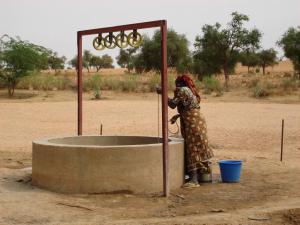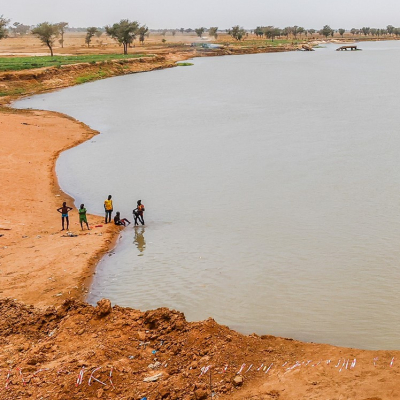In Malawi, a remarkable European Investment Bank (EIB)-led collaboration, involving the Government, the European Union (EU), international NGOs and local partners, highlights how a combination of flexible finance, technical and capacity development assistance plus local know-how can lead to project success, while safe-guarding the environment.
2013 is the UN’s International Year of Water Cooperation, aiming to spotlight the fact that around 2.4 billion people still live without basic water and sanitation needs. But despite this stark number, there have been many successes towards the ‘Water Millennium Development Goal’ (MDG7).
One project supporting this is a complex collaboration in Malawi that, in a mere five years, has provided nearly 750,000 people with access to safe and reliable water, and another 468,000 to basic sanitation.
The Malawi Peri-Urban Water Supply and Sanitation Project developed out of a 2006 EU Water Facility Call for Proposals. The EIB proposed a project that would reinforce existing water structures, and extend water access to low-income areas in the capital Lilongwe, and the country’s second city, Blantyre.
With a long history of providing sustainable investments to water projects in ACP countries, the EIB was allocated a grant of €15 M. The project was again submitted for the second Call for Proposals of the 9th EDF Water Facility, and it was awarded a second grant of €15 M.
The key premise of the project was to build upon pre-existing structures and organizations in Malawi, with a focus on capacity development and management restructure.
“This has proven to be very successful and cost-effective,” said Harald Schölzel, EIB’s Water Sector Specialist at the recent “EIB’s Investment in the Water Sector in ACP countries” workshop in Brussels, where the main challenges and achievements of the project were explained. Powerpoint presentations from the workshop are available here.
EIB first analysed the existing situation. “We held a stakeholder workshop, with stakeholder analysis. A UK-based NGO helped identify who would play an important role in this project, who could present an obstacle, who could be supportive to the project …” said Scholzel.
Then came the challenge of convincing the stakeholders to work directly with implementing partners who were already on the ground in Malawi, rather than replacing them.
At the same time, the equally apprehensive NGOs needed courting to convince them to work within the international financing institution’s often complex procedures.
NGOs with strong community relationships in poor areas were targeted, to roll out the projects’ behaviour change/hygiene promotion campaign. They also had the role of involving the communities to ensure ownership, and overseeing the water handling operations on the field.
After initially turning down the offer, the NGO WaterAid came on board in Lilongwe, and Water for People were secured in Blantyre through a competitive bidding process.

To better manage the many aspects of the project, EIB gathered together the stakeholders – also including the Lilongwe Water Board and the Malawian Ministries of Finance and Water - to plan and brainstorm, in what Schölzel calls ‘a tremendous effort of harmonisation’. This process was facilitated with the full support of the Delegation of the European Union to Malawi.
For its part, the Lilongwe Water Board was responsible for infrastructure rehabilitation, for which it received capacity development training in an inclusive set up. “We had the service contractor, the expert and the Water Board working together on one thing, “ said Project Manager, Alfonso Chikuni. “This set up, throughout the project, was very influential in terms of the turnaround of our working culture.”
The EC remained closely involved at a technical level, particularly in providing capacity development assistance to monitor the project.
As the project draws to a close, its success is plain to see. Aside from the sheer number of people who now have access to water, waterworks and reservoirs have received physical rehabilitation, the hygiene campaign has ensured a sharp decline in water-borne disease, hundreds of jobs have been created inside the communities through the set up of water kiosks and waste management initiatives, and tariff systems are in place to promote sustainability.
For Mr Chikuni, it is the capacity development that has taken place at all levels that is key. “The project required a combination of effort from the different partners,” he said. “There are so many in this project … and we’ve all learned from each other.”
Full-length video interviews with Harald Schölzel (EIB), Alfonso Chikuni (Lilongwe Water Board) and Wellington C. Mitole (WaterAid Malawi) can be seen here, in the Public Group on Water and Sanitation.
This collaborative piece was drafted by Héloïse Texier with input from Hellen Meijer and Antoine Saintraint, with support from the capacity4dev.eu Coordination Team.





Log in with your EU Login account to post or comment on the platform.